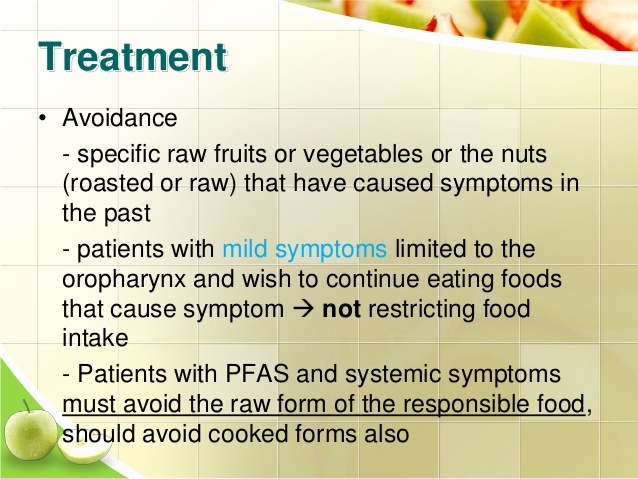
If you don't know what oral allergy syndrome actually is, understanding it can be a bit difficult
First, however, it's important to understand what oral allergy syndrome actually is.
Oral allergy syndrome, or eczema as it is sometimes called, is generally caused by allergic reactions to certain foods and airborne allergens found in pollen, dust, and other natural sources. Common causes of allergic reactions include milk, eggs, soy, peanuts, wheat, and other foods. In many cases, though, the allergic reaction may also be triggered by a change in environment, such as using a different house or going to a new place.
Many people who have allergic reactions aren't aware of it. They think they're simply getting a bad case of cold, or a case of the flu. They may even have symptoms that mimic allergies, such as nausea, vomiting, and stomach cramps. A visit to their doctor is the only way to determine whether or not they have an allergy, though they may never realize that they have it. Some people never even have symptoms.
In more severe cases, the immune system of the body may react differently in response to food and environmental allergens. People with sensitive immune systems can develop asthma, a chronic respiratory disease, or an allergy-like ผื่นคัน in response to various things. People with allergies often become itchy, with a red rash on their cheeks and neck that sometimes becomes inflamed and crusty.
For many people with oral allergy syndrome, the allergy itself isn't enough to show signs of trouble. Some may suffer from symptoms such as chest pain, fatigue, or dizziness. Sometimes, the allergy will cause symptoms that can't be explained, including runny nose, hives, or swollen lymph nodes.
If you suspect you have an allergy, it's best to get your diagnosis confirmed through an allergy test. If you don't have allergies, you'll probably have to wait a little while for the tests to reveal the results of your tests and confirm the diagnosis. If you do have allergies, though, your doctor may give you a shot of antihistamine medication to help you feel better while your body works on clearing up the allergy.
One thing that you should know about allergic reactions is that the allergy can happen at any time. Even when you aren't feeling it. If you go to work in the morning, the last thing you want is to notice are rashes on your face and neck. You may be allergic to your own skin, though.
Your body can release histamines into the blood to help protect you from allergens, but as soon as you come in contact with something that's allergic, the immune system kicks into action to fight them back. This is why it's important to avoid things that you can eat, breathe, or drink when you're allergic or wear gloves while you're working at home and at work.
There are a number of ways to prevent an allergic reaction from happening to you. Most allergens are airborne, which means that they can get into the air. If you spend time in close contact with them on a daily basis, then chances are, you have a problem. A simple change in your surroundings is often all it takes to keep them from setting in.
The immune system has several ways of trying to fight off allergens that it's not familiar with. If you're allergic to a certain food, for example, the body will produce antibodies to fight off the protein. These antibodies can help clear out the allergy over time, but it's very important to keep a supply of antihistamine medications on hand just in case you're allergic to something new and start having a reaction.
If you find yourself suffering from oral allergy syndrome treatment that doesn't seem to be working, then you may have a food allergy. In some cases, the allergy may be difficult to treat.
When it comes to oral allergy syndrome treatment, it's important to remember that your immune system's ability to fight off allergens is affected by what you eat, so if you're trying to prevent an allergy, you might be better off avoiding certain foods. If you think you're allergic to milk, then it might be a good idea to stay away from dairy products and other foods that are high in lactose, like cheese, yogurt, and cheese-based products. Foods that are high in sugar may also trigger allergies, so try to avoid those as well.